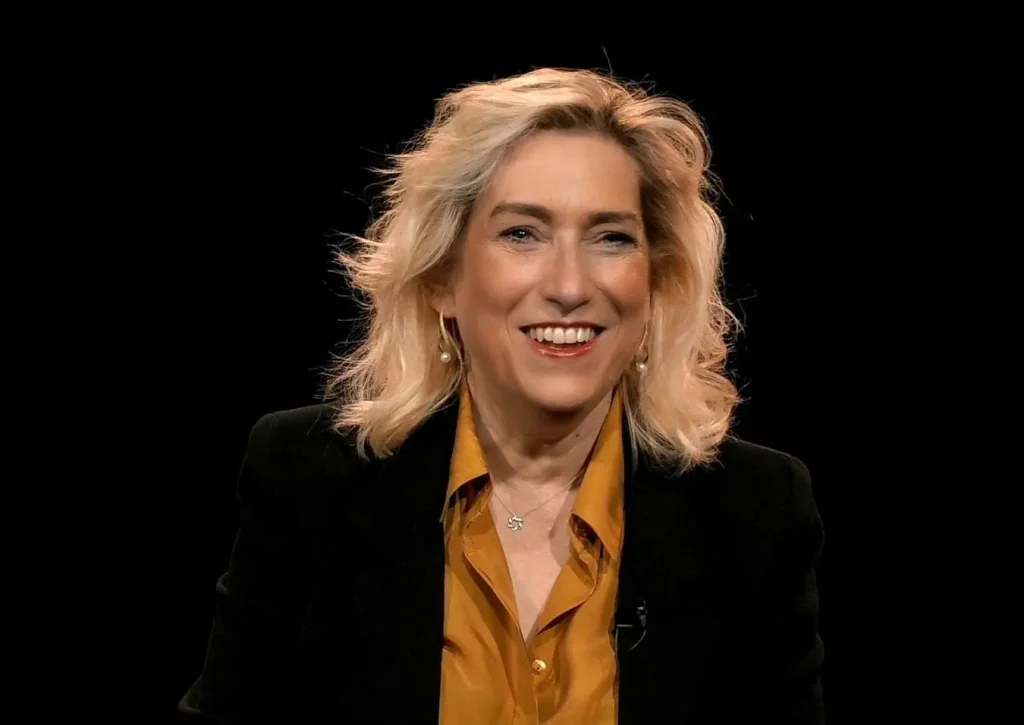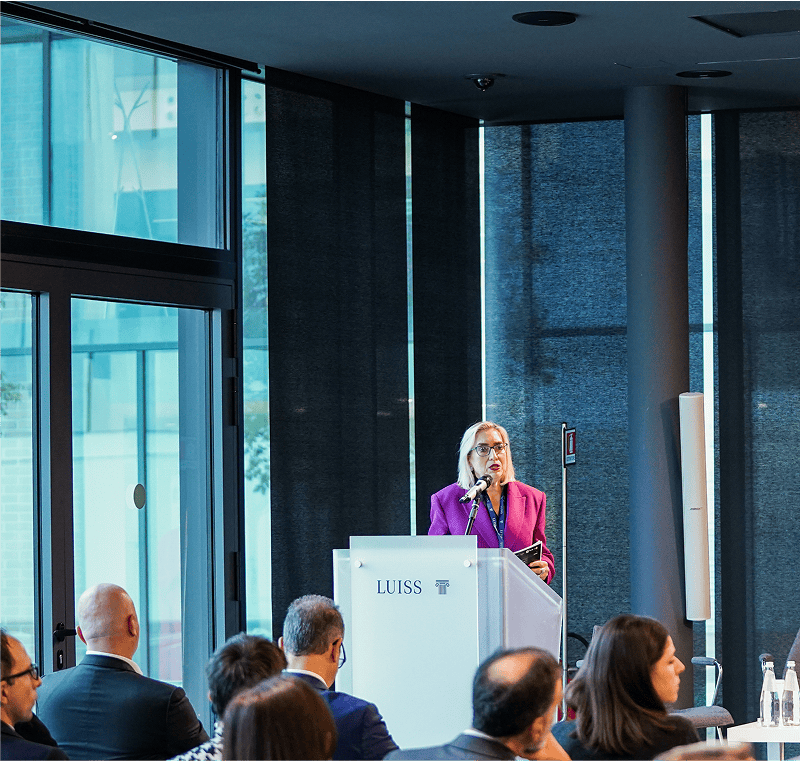11 May 2024, 7:02 | by Claudia Segre |
We publish the introductory speech at the W7 summit in Rome, the civil society reference group for the G7, by Claudia Segre, President of Global Thinking Foundation.
The doors have closed on the Women7 Summit in Rome of which a strong testimony of commitment will remain within an international governance never experienced in Italy and which has borne fruit thanks to the leadership of three Presidents who brought their expertise on the Environment, Entrepreneurship and the social factors that drive the race towards sustainability of all countries without exception.
A W7 summit that grew out of the intuition of the 2017 G7 Women’s Summit, impeccably organised by Marta Dassu’ and Emma Bonino, and which saw the affirmation in the official G7 gender equality grouping materialise with the subsequent 2018 Canadian presidency.
Road map for women at the G7: 5 central themes.
It all started with the handover from my Japanese colleagues who, last December at an event at the Ministry of Culture, entrusted me, Annamaria Tartaglia and Martina Rogato with the task of creating a map of instances that would be the expression of an intersectional approach on five topics: labour, financial empowerment, violence, climate justice and peace and security.
Labour participation and economic justice are intrinsically linked to women’s well-being and thus to a more equitable global development.
Beyond the short term, the frame of reference on which to base immediate actions affecting a fruitful and lasting cultural change cannot be separated from observing, for example, demographic dynamics, looking at the ageing of the population in Italy as in Japan, but also at the slowdown in productivity growth and new technologies, such as artificial intelligence, which pose significant challenges to policy makers.
While policy responses need to be tailored to individual countries’ circumstances, there is a common need to invest in digital infrastructure and workforce skills to preserve the G7’s role as a growth engine for the world economy.
In our journey towards defining a communiqué tailored to these challenges, we asked ourselves how to promote investment to better support women and girls, reduce gender gaps towards gender equality, unleash the potential of the G7 globally in partnership with the rest of the world, combat climate change and stem the deleterious effects of theatres of war that delay the achievement of sustainability, and other areas where global challenges are acute. Women are the first to be affected by these phenomena and how can the G7 act to make a difference for women and girls as well?
There are many positive examples of collaboration between the G7 and the countries of the so-called Global South on the issue of fragility and gender discrimination. And it is no coincidence that the recent significant events held in New York during CSW68, The 68th Session of the Commission on the State of the United Nations, focused on the topic of Women’s Financial Empowerment and allowed me to observe different leadership styles and reflect on inclusion as a crucial aspect of virtuous leadership in some countries.On the one hand, more inclusive countries actively created spaces where all individuals were welcomed. They cultivated a culture of belonging in which everyone felt seen, valued and empowered, with a direct impact on their well-being and health.
In contrast, other countries such as Iran and Afghanistan continue to deny basic rights to women, from access to education to employment, denying any hope of financial and social inclusion.
A commitment to full inclusion is morally right and essential to build a safe space within organisations and communities, while promoting resilience, sustainability and economic development for all.
Too often, politicians do not ask what women need to build their economic power. What are their financial ambitions and what stands in the way of realising their dreams of full citizenship?
Road map: the importance of closing the financial gender gap and investing in targeted policies.
If countries close the financial gender gap and invest in targeted women’s policies, we can expand women’s economic opportunities, increase their economic power and, consequently, economic growth. With our Communique’, the result of six months of work by 72 international experts from 42 countries, we have proposed a path to creating a brighter and more resilient future for women, communities and G7 countries and beyond.
Among the cross-cutting topics were artificial intelligence and health. On this last topic let me highlight the fact that medical research has neglected women’s health for too long. This gap represents a huge missed opportunity that could be worth USD 1 trillion a year to the global economy. New research has identified the highest impact areas for investment in women’s health innovation.
However, one cannot help but note with relief that governments are increasing funding, and an innovative global alliance has formed to reshape the way women’s health solutions are developed and prioritised. Together with the G7 Health delegations, we were able to discuss how the women’s health sector is being transformed.
During our hearing, I emphasised the importance of mental health and how it is linked to victims of economic violence and financial stress, and the need for self-esteem techniques as essential tools for building self-confidence and resilience.
These techniques are particularly valuable in the high-risk gender-discrimination work environments typical of STEM careers, such as Finance, Fintech, Cybersecurity and Engineering. We also emphasised the need for close alliance and male ‘sponsorship’ to advance gender equity. These interventions are essential to breaking down barriers and creating more inclusive spaces in which women can thrive. The conversation also explored how the landscape of sports, crucial for psychological balance, and other traditionally male-dominated fields has changed over the past decade. Sharing my experience in financial education projects with sports teams and their families, I outlined the ongoing progress and challenges, from cyberbullying and cyber violence to disability empowerment, highlighting the broader movement towards inclusivity and recognition of women’s achievements in all areas.
This W7 journey was a powerful reminder of what we have achieved and the exciting paths ahead, highlighting the progress and work still needed to achieve accurate gender equity in financial empowerment, violence prevention and beyond.
Finally, according to the EU study, financial dependency is associated with several negative outcomes, including poorer physical and mental health and fewer opportunities for education, paid employment and entrepreneurial activities.
Because women’s financial dependence on their partners may prevent them from leaving or ending violent relationships, it increases their risk of experiencing partner violence.
Eurostat’s survey on domestic violence (EU-GBV) increasingly shows the prevalence of economic violence, with 4% to 18% of women reporting that their partner forbids them to work or controls family finances and expenses.
Excessive control of family expenses leads to a spiral of other forms of violence, such as those under the recently enacted Istanbul Convention and International Labour Organisation Convention 199.(ILO)
Since last month, new EU legislation, which is in the final stages of the approval process, aims to prevent rape and increase awareness of consent, while female genital mutilation and forced marriage will be included among the offences under EU law.
The new directive will prohibit forced marriage and female genital mutilation and have specific rules on cybercrimes, such as cyber-flashing and cyber-stalking. Victims will thus have better access to justice and health care, including sexual and reproductive services.
It seems clear to me that the one thing that Women lack is opportunity, the real and tangible opportunity to participate in society, and this is what we are saying with our statement: let us raise our voices for equal opportunity, the freedom to make choices and the freedom to see these opportunities in the reality of laws and language, and the willingness to embrace cultural change away from the rhetoric of violence and STEM stereotypes.
It is true that we can be everything to others and especially with our commitment to caring, but no one can be responsible for our happiness but ourselves.
We want to assume this personal responsibility and commit ourselves to activate it and learn how to achieve it. However, this will only be possible with our economic independence and the recognition that women’s rights are human rights, including the right to express ourselves freely, all and everywhere, and the right to be heard for the common good of a prosperous and inclusive society.











